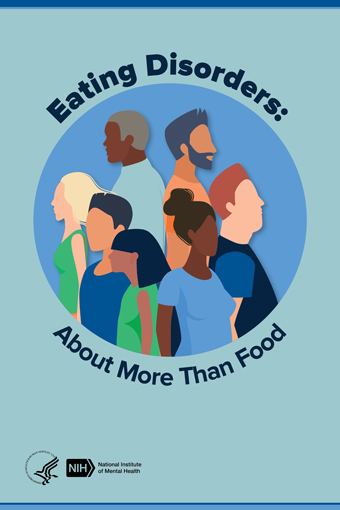The Buzz on Eating Disorder Recovery
Wiki Article
About Eating Disorder Recovery
Table of ContentsEating Disorder Recovery Can Be Fun For EveryoneFacts About Eating Disorder Recovery RevealedA Biased View of Eating Disorder RecoveryThe Facts About Eating Disorder Recovery RevealedEating Disorder Recovery - Questions

Orthorexia is a form of eating disorder, still unrecognized in the DSM, in which a person comes to be obsessed with "healthy and balanced eating." While numerous individuals emphasize to be aware of the components and sourcing of their food, orthorexia can end up being detrimental to the individual's wellness. Orthorexia creates individuals to identify specific food or food teams as "appropriate," "healthy and balanced," or "pure." At some point, specific foods or entire groups are eliminated from the person's diet; they could also start to obsess over the active ingredients in their foods, investing hours each day planning dishes (eating disorder recovery).
Food components might additionally come to be the individual's just topic of conversation. Health effects may consist of a range of stomach and also dietary inequalities. It can additionally create much of the exact same health and wellness dangers as anorexia nervosa, as the individual's caloric consumption might be significantly restricted. Orthorexia is also a common co-occurring problem connected with OCD.
Some Known Incorrect Statements About Eating Disorder Recovery
With this condition, a person will strictly prevent particular foods to the hinderance of their health - eating disorder recovery. Unlike orthorexia, nonetheless, the evasion of particular foods isn't driven by ideas of the food's healthiness or pureness, however instead by a serious aversion to the food's flavor, texture, or smell (although issues about putridity or gastrointestinal disorder might additionally be existing).Gradually, more as well as even more foods end up being untenable, resulting in a very minimal palette of acceptable foods. Previously recognized as selective eating problem, ARFID usually starts in childhood years and also progressively aggravates in time. It's reasonably common for youngsters to be "picky eaters" and also everyone has preferences of what they eat, however if it comes to be compulsive and damaging to a person's wellness, it calls for a check-in with an eating disorder treatment professional.
Likewise like orthorexia, a negative or distorted body picture is not necessarily a root cause of the condition. ARFID is generally dealt with utilizing talk therapy and cognitive re-training such as Cognitive Behavior Modification visit the site (CBT). Unlike the majority of eating disorders which generally initially existing during teenage years, rumination condition is most typical in infancy as well as early youth, although it can persist right into their adult years.
Fascination About Eating Disorder Recovery
Generally, they do not experience tension or disgust when throwing up, nor do they show up to make an effort to throw up (as seen in bulimia nervosa). Rumination disorder is usually a response to an illogical anxiety of illness triggered by eating, although its causes are less well-understood than various visite site other eating disorders.

Orthorexia is a form of eating condition, still unrecognized in the DSM, where a person comes to be consumed with "healthy and balanced consuming." While lots of people emphasize to be aware of the components and also sourcing of their food, orthorexia can end up being damaging to the individual's wellness. Orthorexia creates individuals to identify certain food or food groups as "proper," "healthy," or "pure." Ultimately, particular go to these guys foods or whole groups are removed from the person's diet plan; they might also begin to obsess over the ingredients in their foods, spending hours every day preparation meals.
The Facts About Eating Disorder Recovery Revealed
With this disorder, a person will strictly avoid certain foods to the hinderance of their health. Unlike orthorexia, nonetheless, the evasion of certain foods isn't driven by ideas of the food's healthiness or purity, but rather by a severe aversion to the food's taste, appearance, or smell (although worries concerning perishing or food poisoning may likewise exist).
Over time, an increasing number of foods come to be illogical, bring about an exceptionally minimal palette of acceptable foods. Previously referred to as careful eating problem, ARFID commonly begins in youth and progressively aggravates gradually. It's fairly usual for children to be "particular eaters" and also everybody has preferences for what they eat, yet if it comes to be compulsive as well as harmful to an individual's health and wellness, it calls for a check-in with an eating disorder treatment expert.
Facts About Eating Disorder Recovery Uncovered
Like orthorexia, an unfavorable or distorted body picture is not always a cause of the problem. ARFID is generally dealt with utilizing talk therapy as well as cognitive retraining such as Cognitive Behavior Modification (CBT). Unlike the majority of eating conditions which generally initially present during adolescence, rumination problem is most common in early stage and also very early youth, although it can linger right into adulthood.Usually, they do not experience anxiety or disgust when spewing, nor do they appear to make an effort to vomit (as seen in bulimia nervosa). Rumination problem is commonly a reaction to an unreasonable concern of disease triggered by consuming, although its reasons are less well-understood than other eating problems.
Rumination disorder is provided in the DSM-V. Diabulimia is detailed as one of the many unspecified eating conditions under the catchall term OSFED (Other Specified Feeding r Eating Problem).
Report this wiki page